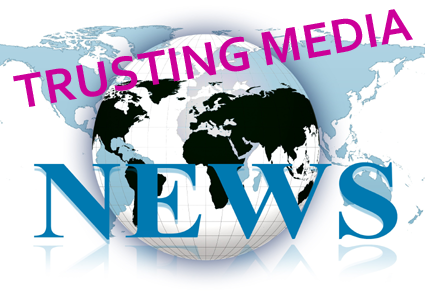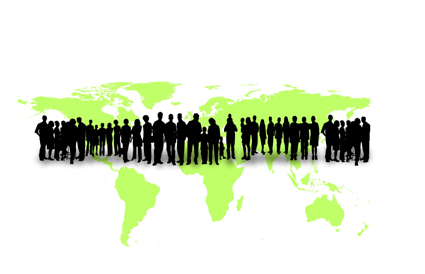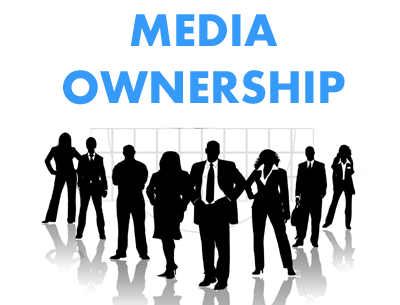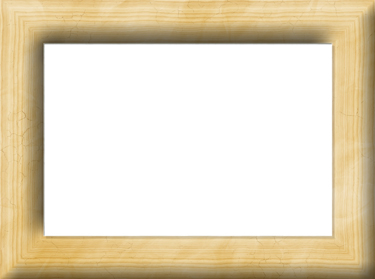Our Habit Of Trusting Media -5 Mistakes We Make
OUR HABIT OF TRUSTING MEDIA: 5 MISTAKES WE MAKE (ISSUE 135)
By Diane Gold
 Our habit of trusting media begins at a very young age. We are raised to become knowledgeable through reading and watching news reports, more or less based upon the habits of our parents or caretakers, and we have assignments in elementary school reporting on the current news events.
Our habit of trusting media begins at a very young age. We are raised to become knowledgeable through reading and watching news reports, more or less based upon the habits of our parents or caretakers, and we have assignments in elementary school reporting on the current news events.
Similar to being raised to accept the word of the family doctor, trusting media is part of the foundation of our youth, a cornerstone of our society. Some families raise their children to be seen and not heard. Others raise them to question everything, as in my family. Today’s children are raised closer to the question everything model due to the abundance and availability to 3-year-olds on their computer tablets.
POPULATION
 So how, in today’s world, do we make mistakes in trusting media?
So how, in today’s world, do we make mistakes in trusting media?
People are still the same, although technology has changed. Unless we have been scorned between birth and 18 months to 2 years (according to Erik Erikson, psychologist), we learn to trust the world. Nothing has changed here. What has changed greatly is the population, which, as my friend J will emphasize, affects everything.
When he and I were growing up, there were more jobs, more food, more land, less greed per capita because there were less people. When more people started vying for the same jobs, ethics and greed led to corruption and dishonesty. This leads us to mistakes we make in trusting media.
MISTAKE 1) READING OR WATCHING THE SAME NEWS OUTLETS
Most of us don’t take the time to read 10 news reports every morning. We start with 1 and may get through the headlines and 1 article plus the financial section if we have investments. That means we get a very small view of what happening. Often, it’s the view of the news outlet that was subscribed to in our youth; and, if we continue to get our information from the same news outlets, we may limit our growth.
MISTAKE 2) FORGETTING TO LOOK AT MEDIA OWNERSHIP
 We all advocate for our own company, want it to thrive, want to give a good product or service, really want to do the right thing – to start. When we get so powerful that we are on the board of directors of lots of industries about whom our journalists might write; we might consider censoring what gets written.
We all advocate for our own company, want it to thrive, want to give a good product or service, really want to do the right thing – to start. When we get so powerful that we are on the board of directors of lots of industries about whom our journalists might write; we might consider censoring what gets written.
In 1983, 50 companies owned American media. As of 2011, there were 6 in America (Disney, News Corp, Fox, Time-Warner, CBS, Viacom with Comcast and Sony following). That’s a huge amount of power for just a few companies to wield.
MISTAKE 3) FORGETTING THAT JOURNALISTS ARE PEOPLE, TOO
As mentioned earlier, including news reports in our lives is part of the foundation with which we were raised, whether it’s to check a stock, read a comic, be connected to our neighbors, check the lotto numbers or read about the daily condition of the world. People have different methods; they read a printed newspaper, watch video news or read news commentary through rss feed technology. What we might not consider is that journalists are people, too. They have families to feed, mortgages to pay and editors who can censor their work.
 a) When a journalist presents a story that negatively impacts friends or family of the media conglomerate’s owner; the story will be disapproved or edited to create a softer version of the truth. It’s similar to the “blood is thicker than water” principle where we protect our families from harm at all cost. An example could be an environmental disaster that is attributed to a company that the media conglomerate owns.
a) When a journalist presents a story that negatively impacts friends or family of the media conglomerate’s owner; the story will be disapproved or edited to create a softer version of the truth. It’s similar to the “blood is thicker than water” principle where we protect our families from harm at all cost. An example could be an environmental disaster that is attributed to a company that the media conglomerate owns.
b) If a journalist presents too many stories that might impact powerful friends of the news agency, the journalist fears for losing her/his job. This brings us back to the population issue we mentioned earlier since the larger the population, the more journalists will be waiting in line for a job.
c) Journalists want to further their careers, as do we all. In order to do this, we sometimes befriend the people we end up writing about. Should a story with negative impact cross our radar, aside from the vetoing power of our editor; it would be our ethical responsibility to decide whether to protect our career and softening or hiding the story or going ahead full speed ahead for full disclosure.
MISTAKE 4) FORGETTING THE ROLE OF ADVERTISING IN MEDIA
Trusting media would be great, if each company did not make self-sustain through advertising contracts. Every media company sells some form of space to media buyers who represent companies with products and services who hire the buyers to spread the word of how we can’t live without their ware.
Therefore, each media company goes out of its way to protect its asset, the ad contract. If any information would negatively impact the relationship of the media company and its income, the ad contract, the media company will be do everything in its power to be protective. This means vetoing articles that may step on toes. This binds the editor and the journalist from disclosing the whole truth as the owner sees fit.
MISTAKE 5) DEPENDING UPON OTHERS TO EVALUATE MEDIA FOR US
When we absorb the views of others, exclusive of our own research, we pass by the opportunity to create and discover. It’s almost like drawing on white paper with a white pencil that has no textures at all. Everything blends in with no thought, never giving ourselves an anchor or foundation with which to come out of the box of other people’s thoughts.
CONCLUSION
There are lots of ethical issues attached to trusting media. In fact, in my opinion, all journalists take an oath upon embarking on their profession. Unlike the medical doctor who recites the Hippocratic Oath or the veterinarian who recites the Veterinarian’s Oath (oh, the thrill at watching my daughter do this one), the journalist’s oath is implied. This unspoken oath includes being truthful, writing unbiasly without preconception to the outcome, protecting sources of information, resisting the temptation to be swayed by political, financial or popular gain and never omitting reportable information that would compromise an interest or person in any one direction.
Unfortunately, due to greed, convenience and human nature; the journalist doesn’t get to exercise her/his oath due to editors, politics in so many places for some of the reasons listed above. And we never know when and where news is omitted, spun, softened or flat out reversed.
When it comes to trusting media, we can trust outlets that are not attached to advertising, politics, other multinational companies and the like. Oh, wait. Those parameters knock out the biggest names in media. Suffice it to say, as long as we are aware of the mistakes named above and then some, we can have an understanding and be aware of trusting media. Networks that are financially unattached and journalists who are encouraged to omit nothing can be hailed as true and trusted well.
New media companies are being created since the existing major players are susceptible to omission and favoritism. These new networks, if all goes well, will have a system of checks and balances in them to insure their transparency. After all, the main ingredient in trusting media is independence from influence and full transparency.
ACTION STEPS
Here are several action steps to replace blindly trusting media.
 1) Decide whether you would like a slanted view of the news. If yes, look for your favorite provider (unless you find a miraculous, objective source). If not, obtain your news from, at least, 5 different places on a regular basis. (The really good way to get a clearer picture would be to change news sources to a new 5 every week for a year. That would give a great overview, and I’d love to hear about it.)
1) Decide whether you would like a slanted view of the news. If yes, look for your favorite provider (unless you find a miraculous, objective source). If not, obtain your news from, at least, 5 different places on a regular basis. (The really good way to get a clearer picture would be to change news sources to a new 5 every week for a year. That would give a great overview, and I’d love to hear about it.)
2) Notice the relationships within your newspapers, news magazines or news video services of choice: who owns them, who the advertisers are, which way they slant. A simple way to know which way they slant is to read the editorials.
3) Notice which news sources always omit or downplay certain stories, and decide if that’s acceptable to you.
4) Click HERE if you would like to learn more about a new media network. Choose Other Stuff and type in LEARN with your contact info.
5) Click HERE if you would like to contribute to a new media network. Choose Other Stuff and type in CONTRIBUTE with your contact info.
![]()
If you wish to share your story, please hit reply in your email program to be contacted.
![]()
FEEDBACK
We value your feedback very much.
Please leave a comment below.
Please LIKE us on the website and at
WarriorsOfWeight on Facebook.
You can also follow us on Twitter @warriorsoweight.
Thanks.
![]()
DIANE GOLD, PUBLISHER AND AUTHOR
Diane Gold, Founder of Warriors of Weight, Turning Habits Into Health, is a mentor in tai chi, kung fu and meditation, a music, fitness and stress expert, dedicated mom, studying plant-based nutrition and habit change.
She believes we can choose to believe what we hear or not. She says,
“It is truly important to think on our own. If we listen to cliques excluding creative thought, where will we be? If we learn to put a value on the place or person from where what we hear came, we will learn to hear ourselves.
“Listening to media is a great thing, as long as we realize its biggest advantage is to encourage independent thought. Let us be selective and moral, based on what resonates with our truth. Although it may feel cozy to emulate someone’s words or some journalist’s article; our own words are the most powerful, if we let them be.
“Be thoughtful in trusting media, knowing it is comfortable to believe a convincing story. Let’s think it out, making certain we are looking at the whole picture, who owns what, who is independently reporting.
“Finally, let us all take good care of ourselves because we are so worth it!”
![]()







